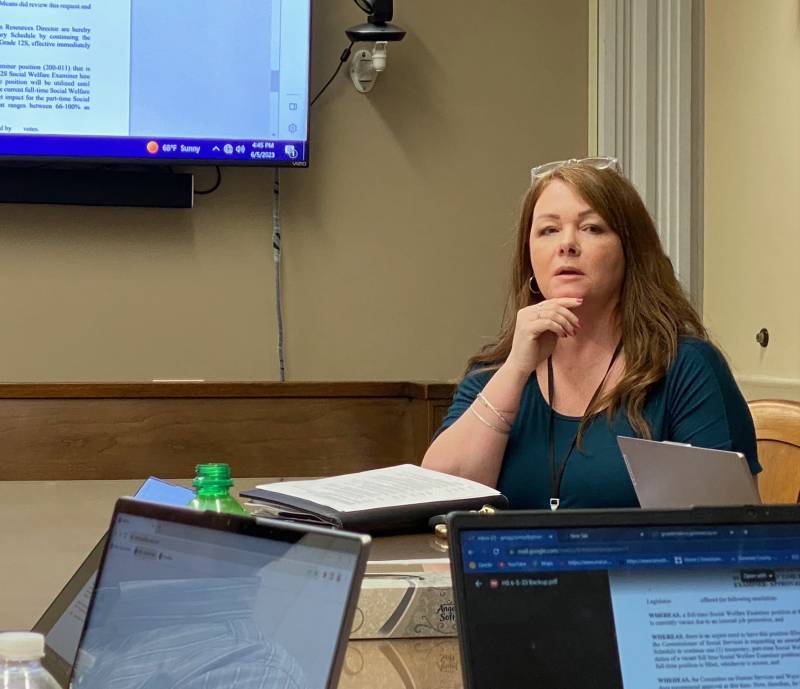
Photo by Joanne Beck
Genesee County Social Services Commissioner Carla Mindler hopes someone can fill a newly proposed hybrid job—pending county Legislature approval—that would combine youth bureau and child welfare in a merged position she feels would best meet her department's needs.
Due to employee resignations from two part-time Youth Bureau positions, a reassessment showed that one full-time youth program assistant/child care worker sufficiently works in lieu of those part-time jobs, Mindler said during this week’s Human Services meeting.
“So at the Youth Bureau, currently we have two full-time and two part-time positions, and in sort of working with the Youth Bureau and doing some restructuring, learning about the Youth Bureau and kind of seeing how things flow throughout the year, it's become pretty evident that really what would most benefit that area of DSS would be the two full-time positions (one each, a youth program assistant and youth program coordinator),” she said. “But then, I'm not sure we really need two part-time positions; however, I could definitely use one. So, what I would like to do is eliminate the two part-time positions in the Youth Bureau and create a full-time position that is half Youth Bureau and half child welfare work.
“So we will sort of divvy up the job duties dependent on what the need is really, if the Youth Bureau is very busy, which it does kind of ebb and flow, then they would be used heavily over there. And then they could help out in the cluster care unit,” she said. “So the childcare worker position already exists in DSS. It's the youth workers that work in our cluster homes, which are where, like some of the older kids, are placed that were maybe removed because of behavioral issues they are having, rather than there were allegations against the parents. So the childcare workers work with these children and with the families. So they would be splitting their time between those duties.”
This type of collaboration will be the trend moving forward, she said, as the Youth Bureau is going to be a division of DSS.
“So it's just like how I have different units right now. Right now, someone works in child welfare, but we also have adult services. So there'll be child welfare and the Youth Bureau, just two units of DSS essentially splitting their time,” she said.
She was asked about the seemingly incongruent job responsibilities and whether it was feasible to get good job candidates for this new hybrid position. Mindler didn’t seem concerned. She recently received communications from people new to the area seeking job opportunities in a youth bureau-type setting and has let them know there may be an opening in the near future.
As far as the experience required for this new full-time role, Mindler said she was careful about drafting the description.
“The part-time person is often because it's an assistant position. They help out with the events and activities. And they will actually if they have kids that they're working with from the cluster homes, those kids could actually help out as well because it is more like assistant-type work. So that will be potentially some crossover that they'll be able to pull the kids in to have some time to help with the events. And then they won't be working with the kids on any sort of case management level such that they would need experience or training in child welfare,” she said. “That's why we were very careful. (HR Director) Anita and I worked on the job duties. I kept all of the youth program assistants, but I only pulled in the childcare worker duties that seemed appropriate for someone without having the training and experience in child welfare.”
The job would be established once the Legislature votes to adopt a resolution on March 13. It states that the full-time Youth Program Assistant/Child Care Worker position, CSEA Grade 9, is to be effective immediately upon legislative approval with a starting pay rate of $20.11/hour.
The total cost of the newly created position will be $73,567.78 for calendar year 2024. State and Federal reimbursement ranges between 62% and 100%, as determined by case-specific eligibility.
